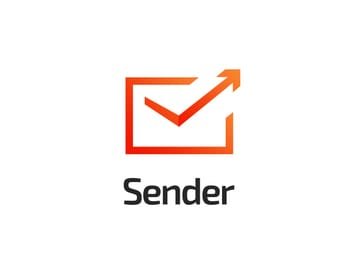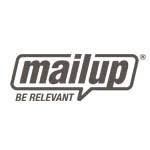In the bustling digital marketplace, email marketing stands as a cornerstone of effective communication and engagement strategies for businesses big and small. But with a plethora of tools vying for your attention, choosing the right one can feel like an overwhelming task. Two platforms that often come up in this conversation are Sender and MailUp. Each brings its unique strengths to the table, tailored to different types of users and business needs. In this deep dive, we’re going to unpack the features, ease of use, pricing, and more, to help you decide which tool is the perfect fit for your email marketing ambitions. Let’s kick things off by comparing their ease of use and user interface, because let’s face it, no one wants to wrestle with complicated software.
| Sender | MailUp |
|---|---|
 |  |
| G2 Score – 4.4 out of 5 stars | G2 Score – 3.7 out of 5 stars |
| TrustRadius Score – 5.2 out of 10 | TrustRadius Score – 6.0 out of 10 |
Ease of Use and User Interface
When it comes to email marketing tools, the first handshake comes in the form of their user interface (UI). A platform that’s intuitive and easy to navigate can significantly cut down on your learning curve and help you focus on what really matters: crafting messages that resonate with your audience.
Sender: Streamlined Simplicity
Sender is celebrated for its straightforward approach to email marketing. From the get-go, you’re greeted with a clean, intuitive dashboard that makes it easy to find your way around. Whether you’re crafting your first campaign, segmenting your audience, or analyzing your latest reports, Sender’s UI feels like a gentle guide rather than a hurdle to overcome.
The platform’s email editor is a particular highlight, offering a drag-and-drop interface that’s as simple as it is powerful. Even if you’ve never designed an email in your life, Sender’s editor makes you feel like a pro, with pre-designed templates and easy customization options at your fingertips. It’s this blend of simplicity and functionality that makes Sender a go-to for small to medium-sized businesses looking for an efficient way to kickstart their email marketing efforts.
MailUp: Robust but Refined
MailUp takes a slightly different approach, aiming to cater to both beginners and seasoned marketers with a more feature-rich interface. While this means a slightly steeper learning curve, it doesn’t take long to appreciate the depth of tools and options at your disposal. The platform offers a comprehensive suite of features, from advanced segmentation and automation to detailed analytics, all accessible through a well-organized dashboard.
The email editor in MailUp is robust, supporting both drag-and-drop simplicity for quick campaigns and a powerful HTML editor for those who want more control over their designs. This flexibility is a boon for businesses with diverse marketing needs, from straightforward promotional emails to complex, data-driven newsletters.
Verdict on Ease of Use and User Interface
Choosing between Sender and MailUp on the basis of ease of use and user interface boils down to your preferences and needs. If you value a platform that gets you up and running quickly with minimal fuss, Sender’s streamlined simplicity will appeal to you. Its user-friendly design and intuitive tools make email marketing accessible, even for beginners.
On the other hand, if you’re looking for a tool that offers a deeper set of features and you don’t mind a bit of a learning curve, MailUp provides the flexibility and power to execute more sophisticated campaigns. Its robust editor and comprehensive dashboard are well-suited for marketers who need a bit more from their email marketing platform.
Pricing and Scalability
As businesses grow, their email marketing needs evolve. It’s crucial to choose a platform that not only fits your current budget but also scales with your future ambitions. Let’s explore how Sender and MailUp stack up in terms of pricing and scalability.
| Sender | Free Plan: Up to 2,500 subscribers and 15,000 emails per month. Includes basic features like newsletters and subscription forms. Standard Plan: Starting at $11/month for up to 5,000 subscribers and 60,000 emails. Includes advanced features like autoresponders and transactional emails. Professional Plan: Custom pricing based on higher volumes of subscribers and emails, including additional features like dedicated IP and webhooks. |
| MailUp | Pay Per Speed Plans: MailUp’s pricing is based on sending speed rather than the number of contacts. Starts at around $65/month for the slowest sending speed. Monthly Plans: Also offers traditional monthly plans based on the number of emails sent, with prices starting at around $85/month for up to 400,000 sends. Prepaid Credits: Alternatively, you can buy prepaid credits for sending emails without a monthly fee. All plans include features like email automation, transactional emails, and analytics. |
Sender: Affordable Growth
Sender distinguishes itself with a pricing model designed for accessibility and growth. It offers a very generous free plan, which is perfect for small businesses or startups just beginning their email marketing journey. This plan includes access to most of the platform’s core features, allowing users to send a significant number of emails to a respectable list size without spending a penny.
As your business expands, so does Sender’s capability to accommodate your growth. Its paid plans are structured based on the number of subscribers, ensuring that you’re only paying for what you need. This straightforward scalability makes Sender an attractive option for businesses that expect to grow their audience steadily and want a pricing plan that grows with them without breaking the bank.
MailUp: Customized Solutions
MailUp approaches pricing with a focus on customized solutions tailored to the specific needs of each business. While it doesn’t highlight a free plan as prominently as Sender, MailUp offers a range of options that cater to businesses of all sizes, from small startups to large enterprises. The pricing is based on the volume of emails sent and the range of features required, ensuring that businesses pay for the capacity and capabilities they actually use.
For businesses with more complex needs or those planning to scale up their email marketing efforts significantly, MailUp’s flexible pricing model can be a major advantage. It allows for a high degree of customization in both features and volume, ensuring that the platform can accommodate growth in various dimensions, from increasing subscriber lists to integrating advanced marketing strategies.
Verdict on Pricing and Scalability
When it comes to pricing and scalability, the choice between Sender and MailUp hinges on your current size, budget, and growth expectations. For startups and small businesses looking for a cost-effective entry point into email marketing with room to grow, Sender offers a compelling proposition with its free tier and straightforward scalability.
MailUp, with its emphasis on customized pricing and scalability, is better suited for businesses that require a more tailored approach from the start or anticipate a need for a more sophisticated set of features as they expand. Its flexible pricing model ensures that you can adapt your plan to fit your evolving marketing strategy and audience size.
Automation and Integration Capabilities
In the fast-paced world of email marketing, automation and seamless integration with other digital tools can significantly boost your efficiency and campaign performance. Here’s how Sender and MailUp measure up in these areas.
Sender: Streamlined Automation for Efficiency
Sender makes automation accessible, even to those new to email marketing. The platform offers an intuitive automation builder that allows users to easily create workflows for a variety of purposes, from welcoming new subscribers to nurturing leads and re-engaging inactive customers. These automation features are designed to be set up with just a few clicks, making it simple to deploy sophisticated email sequences without needing deep technical expertise.
In terms of integrations, Sender provides a solid selection of connectors to popular ecommerce platforms, CRM systems, and other marketing tools. This enables businesses to synchronize their email marketing efforts with their broader digital strategy seamlessly. While the range of integrations may not be as extensive as some larger platforms, it covers the most commonly used services, ensuring that small to medium-sized businesses can connect their essential tools without hassle.
MailUp: Advanced Automation and Broad Integration Ecosystem
MailUp offers a more advanced set of automation features, catering to businesses with complex marketing needs. The platform allows for the creation of detailed, multi-step workflows that can be triggered by a wide array of subscriber actions and behaviors. This enables marketers to craft highly personalized email journeys that respond dynamically to each subscriber’s interactions with their brand.
On the integration front, MailUp shines with its extensive ecosystem of connectors and APIs. The platform integrates with a vast array of ecommerce solutions, CRM software, social media platforms, and more, allowing for a high degree of customization and flexibility. For businesses that rely on a wide range of tools and platforms, MailUp’s comprehensive integration capabilities ensure that email marketing campaigns can be tightly woven into the fabric of their overall digital strategy.
Verdict on Automation and Integration Capabilities
When deciding between Sender and MailUp based on automation and integration capabilities, the scale and complexity of your email marketing operations are key considerations.
For those seeking an easy-to-use solution that offers straightforward automation tools and essential integrations, Sender is an excellent choice. Its user-friendly approach ensures that businesses can quickly set up automated campaigns and connect to key services without needing extensive technical knowledge.
Conversely, MailUp is better suited for organizations that require advanced automation features and a broad range of integrations to support complex marketing strategies. Its extensive capabilities offer the flexibility and depth needed to execute sophisticated, data-driven campaigns across multiple channels.

Related: Check out our free SEO suite

Reporting and Analytics
The insights derived from your email campaigns can tell you a lot about your audience’s preferences and behavior. Both Sender and MailUp offer a range of reporting and analytics features, but they cater to different types of users with varying needs for data analysis.
Sender: Intuitive and Actionable Insights
Sender focuses on making analytics straightforward and actionable. The platform provides a comprehensive overview of key metrics such as open rates, click-through rates, conversion rates, and bounce rates. These metrics are presented in a clear, easy-to-understand format, allowing users to quickly gauge the success of their campaigns and identify areas for improvement.
In addition to standard performance metrics, Sender offers visualizations of campaign data, making it easier for users to digest information and spot trends. While its analytics capabilities might not delve into the depth that data scientists would appreciate, they are more than sufficient for small to medium-sized businesses looking to understand their campaign performance and make informed decisions.
MailUp: Advanced Analytics for Data-Driven Marketers
MailUp takes analytics a step further, catering to marketers who thrive on data and detailed analysis. The platform offers a wide range of advanced reporting features, including click maps, geo-tracking, and device analysis, which provide deeper insights into how subscribers interact with emails. These advanced metrics can help marketers fine-tune their campaigns for better engagement and conversion rates.
Furthermore, MailUp allows for the integration of its analytics with other tools, such as Google Analytics, enabling a more holistic view of digital marketing efforts. For businesses that rely heavily on data to drive their marketing decisions, MailUp’s robust analytics capabilities offer the granularity and depth needed to perform sophisticated analyses and optimize campaigns based on detailed performance metrics.
Verdict on Reporting and Analytics
The choice between Sender and MailUp for reporting and analytics should align with your business’s analytical needs and how you intend to use data to inform your marketing strategies.
Sender is ideal for businesses that require straightforward, easily accessible insights to guide their email marketing decisions. Its focus on actionable analytics makes it suitable for marketers who want to understand their campaign performance at a glance and make quick adjustments.
MailUp, with its advanced analytics features, is the better option for data-driven organizations that demand deep dives into their campaign data. Its comprehensive reporting tools support a more nuanced analysis, appealing to marketers who base their strategies on detailed data insights.
Customer Support and Resources
Both Sender and MailUp understand the importance of support and educational resources in enhancing user experience and enabling customers to leverage their platforms fully. Let’s see how they compare in this vital area.
Sender: Accessible Support and Rich Educational Content
Sender prides itself on providing accessible and responsive customer support. Users can reach out through multiple channels, including email and live chat, ensuring that help is readily available when needed. The platform’s commitment to customer service is evident in its timely responses and the quality of assistance provided, making it easier for users to resolve issues quickly and get back to their marketing activities.
Beyond direct support, Sender offers a wealth of educational resources designed to help users improve their email marketing skills. From comprehensive guides and tutorials to an informative blog filled with tips and best practices, Sender equips its users with the knowledge to succeed. These resources are particularly beneficial for small businesses and those new to email marketing, providing a solid foundation to build and refine their strategies.
MailUp: Professional Support and Advanced Learning Opportunities
MailUp takes a slightly different approach, focusing on providing professional-grade support and advanced learning opportunities. The platform offers support through email, phone, and a ticketing system, catering to businesses with varying preferences for communication. MailUp’s support team is known for its expertise, offering not just technical solutions but also strategic advice to help businesses optimize their email marketing efforts.
In terms of educational resources, MailUp provides an extensive knowledge base, webinars, and workshops that delve into both the technical aspects of using the platform and advanced email marketing strategies. These resources are tailored to marketers looking to deepen their understanding and expertise, offering insights into topics like segmentation, personalization, and automation at a more advanced level.
Verdict on Customer Support and Resources
When it comes to customer support and resources, both Sender and MailUp excel, but they cater to different needs and preferences.
Sender is an excellent choice for those who value easy access to support and a wide range of educational materials aimed at helping users quickly get up to speed and start seeing results from their email marketing efforts. Its user-friendly approach makes it ideal for small businesses and those new to the field.
MailUp, with its professional support and comprehensive learning opportunities, is better suited for businesses and marketers seeking to elevate their email marketing knowledge and strategies. Its focus on advanced topics and strategic guidance makes it a strong option for those looking to dive deeper into the nuances of email marketing.
Deliverability and Reputation Management
The ability of your emails to land in the inbox, avoiding the spam folder, is crucial for the success of any email marketing campaign. Deliverability depends on a variety of factors, including the email marketing platform’s infrastructure, sender reputation management, and compliance with email best practices. Here’s how Sender and MailUp address these crucial issues.
Sender: Proactive Deliverability Support
Sender focuses on providing users with the tools and guidance needed to maintain high deliverability rates. The platform emphasizes the importance of list hygiene, encouraging users to regularly clean their email lists of inactive or unengaged subscribers to maintain a healthy sender reputation. Sender also makes it easy to implement best practices such as authentication protocols (SPF, DKIM, DMARC) which are critical for improving email deliverability.
Additionally, Sender provides resources and tips on how to craft email content that avoids spam triggers, further aiding in ensuring emails reach their intended destination. While Sender takes a hands-on approach to assist users in maintaining good deliverability, the platform’s size and scope mean it may not offer the same level of personalized deliverability support as larger providers.
MailUp: Advanced Deliverability Features and Personalized Support
MailUp offers a comprehensive suite of deliverability features, supported by a team of experts dedicated to helping users maximize their email reach. The platform provides advanced monitoring tools that track deliverability metrics in real-time, allowing users to quickly identify and address issues that could impact their sender reputation or email performance.
MailUp also offers personalized deliverability support, including consultations with deliverability experts who can provide tailored advice and strategies for improving inbox placement. This level of support is particularly beneficial for businesses with large email volumes or those operating in industries where deliverability challenges are more common.
Furthermore, MailUp actively manages its sending infrastructure to ensure high deliverability rates, including the use of dedicated IP addresses for high-volume senders, which can help isolate and protect sender reputation.
Verdict on Deliverability and Reputation Management
When it comes to deliverability and reputation management, both Sender and MailUp offer strong capabilities, but they serve different types of users.
Sender is well-suited for small to medium-sized businesses looking for a platform that provides essential tools and guidance for maintaining good deliverability. Its focus on ease of use and practical advice makes it a solid choice for those who want to ensure their emails reach their audience without needing deep technical expertise.
MailUp, with its comprehensive deliverability features and personalized expert support, is ideal for larger businesses or those with specific deliverability challenges. Its advanced monitoring tools and the option for dedicated IP addresses cater to the needs of businesses that prioritize deliverability and are willing to invest in specialized support to achieve it.
Conclusion
Choosing between Sender and MailUp for your email marketing efforts ultimately hinges on your specific needs, preferences, and the scale of your operations. Sender offers a streamlined, user-friendly experience, making it an excellent choice for small to medium-sized businesses that prioritize ease of use, affordability, and solid deliverability with supportive guidance. Its approachable interface and straightforward tools cater perfectly to those new to email marketing or with limited technical resources.
On the other hand, MailUp presents a more robust solution with advanced features, extensive integrations, and comprehensive support designed to meet the needs of larger businesses or those with complex marketing strategies. Its emphasis on personalized deliverability support and advanced analytics makes it ideal for organizations that require a high degree of customization and are focused on optimizing every aspect of their email campaigns. Ultimately, whether you lean towards Sender’s simplicity and cost-effectiveness or MailUp’s advanced capabilities and scalability, both platforms offer valuable tools to enhance your email marketing strategy and connect with your audience effectively.
Read Next
- The Importance of Building Authentic Relationships in Influencer Marketing
- Influencer Marketing for Digital Tools and Software: Engaging with Tech Influencers
- The Role of Webinars and Live Events in Influencer Marketing Success
- Influencer Marketing for the Food and Beverage Industry: Collaborating with Food Bloggers and Chefs
- The Power of Micro-Influencers in Influencer Marketing






















Comments are closed.